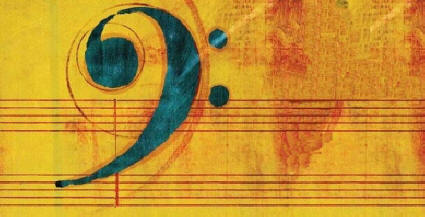
| For week by week description of requirements, assignments, and exams, refer to the Course Outline at the following link: http://vickyjohnson.altervista.org/analyticaltechniques.htm Course Description In-depth analyses of common-practice repertoire through multiple techniques. This course focuses on developing skills in the analysis of both the written score and also music as performed. Students will examine principles of form and style and, using a range of analytical techniques, come to a deeper understanding of tonal music. Required Text and Materials  | You will need one comprehensive college-level music theory textbook. We will not cover most of the basics that you learned in undergraduate music theory, so self-review may be necessary. You will be encouraged to work independently to fill in any gaps you may have in music theory knowledge and skills. Here are some good textbooks to choose from if you don't have one. You do not have to have the latest edition of any of of these. If you used a different text in undergraduate study, it will probably be fine. Email me if you are not sure. | Benjamin, Thomas, Michael Horvit, and Robert Nelson. Techniques and Materials of Tonal Music: From the Common Practice Period to the Twentieth Century, Thomson-Wadsworth. Benward, Bruce, and Marilyn Saker. Music in Theory and Practice, McGraw-Hill. Clendinning, Jane Piper, and Elizabeth West Marvin. The Musician's Guide to Theory and Analysis. W. W. Norton. Kostka, Stefan, and Dorothy Payne. Tonal Harmony, McGraw-Hill. Merryman, Marjorie. The Music Theory Handbook, Schirmer. Ottman, Robert W. Advanced Harmony: Theory and Practice, Englewood Cliffs, NJ: Prentice Hall. Straus, Joseph N. Elements of Music, 2nd ed. Upper Saddle River, NJ: Prentice Hall. Turek, Ralph. The Elements of Music: Concepts and Applications, McGraw-Hill. |
|
 | Access to Microsoft Word and a notation program (Finale or Sibelius) |
 | Publication Manual of the American Psychological Association, 6th Edition (Your final project analysis will need to be formatted in APA style) |
Course Objectives Intended Student Learning Outcomes: At the conclusion of the course, the student will be able to: A. Knowledge Outcomes: describe the different systems used in the analysis of tonal music define the performance implications of analysis outcomes
B. Skill Outcomes: perform useful analysis from musical performance and written score associate the structure, style elements, and compositional components of a piece with the corresponding composer and era prepare a formal, multidimensional analysis of an assigned work
C. Value Outcomes: gain stylistic and historical perspective of specific pieces based upon analytical results develop and synthesize their own ideas about musical works have a richer understanding of music's basic elements and aesthetic qualities
|
Course Activities  | Online lecture material |
 | Reading assignments |
 | Weekly graded assignments |
 | Discussions |
 | Final project |
Course Requirements  | Weekly assignments based upon the lecture and reading material |
 | Discussion postings |
 | Final analysis project of extended work |
Grading  |
50% Assignments |
 |
30% Discussion Posts |
 | 20% Final project |
Attendance Attendance Policy: This is an online class. Students are expected to check in online regularly for announcements and to keep up with discussions. Recommendation is to check in daily. Assignments and discussions will have weekly deadlines.
Students With Disabilities Policy It is the policy of Tarleton State University to comply with the Americans with Disabilities Act and other applicable laws. If you are a student with a disability seeking accommodations for this course, please contact Student Disability Services, at 254.968.9400 or disability@tarleton.edu. More information can be found at www. tarleton.edu/sds or in the University catalog. Academic Conduct
Cheating, plagiarism (submitting another person's materials or ideas as one's own), or doing work for another person who will receive academic credit are all impermissible. This includes the use of unauthorized books, notebooks, or other sources in order to secure or give help during an examination; the unauthorized copying of examinations, assignments, reports, or term papers;
turning in a paper or project previously used in another course; or the presentation of unacknowledged material as if it were the student's own work. Any student caught cheating will receive a grade of "F" for the class. Further disciplinary action may be taken beyond the Department of Fine Arts. Cheating is serious business and the penalties for engaging in this sort of activity will be severe. Consult the following link for further information on academic conduct as specified in your student handbook:
http://www.tarleton.edu/catalog/academic-information/academic-honesty.html Technology One of the biggest frustrations in an online course can be the technology required to make it happen. Don't hesitate to contact the technology resource personnel at Tarleton.
They are there to help you. Here is a webpage with several links
to help you. Please access this page and take the
opportunity to configure your computer before the course begins:
https://www.tarleton.edu/technology/index.html |


Created and maintained by Vicky V. Johnson |
|
